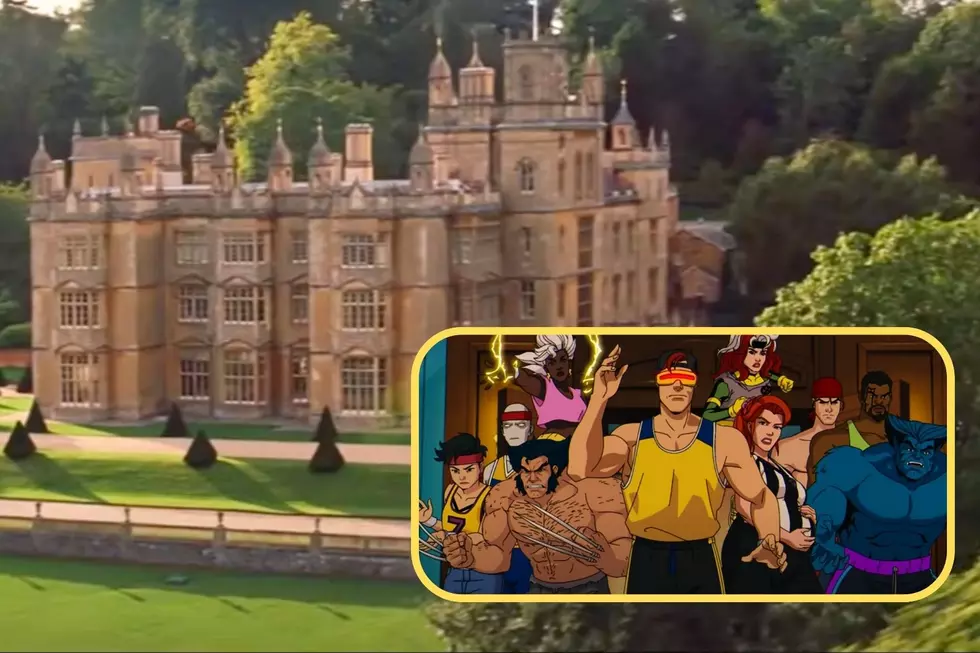
The History of the Marvel Cinematic Universe, Part 1: ‘Iron Man’
In The History of the Marvel Cinematic Universe, ScreenCrush editor-in-chief Matt Singer looks back at every film in the MCU to date, leading up to the premiere of Avengers: Infinity War on May 4. Previous chapters can be found here.
Chapter 1: Iron Man
Director: Jon Favreau
Writers: Mark Fergus, Hawk Ostby, Art Marcum, Matt Holloway
Release Date: May 2, 2008
U.S. box office: $318.4 million
Worldwide box office: $585.1 million
Rotten Tomatoes rating: 94 percent
Metacritic score: 79
Letterboxd average grade: 7.4
CinemaScore: A
What Holds Up
The picture above was chosen very deliberately; Iron Man became the blueprint for the entire Marvel Cinematic Universe. Besides the film’s two sequels, plus the two Avengers movies dominated by Robert Downey Jr.’s Tony Stark, plus the Captain America movie that was essentially an Iron Man movie, Marvel has used the formula established here (self-centered jerk learns that great power comes with great responsibility) in movies like Thor, Ant-Man, and Doctor Strange.
I explored this a little bit in an essay a few months ago about how Tony Stark’s evolution onscreen from Iron Man to Spider-Man: Homecoming mirrors Marvel’s own evolution from upstart studio to film industry powerhouse, but it is still striking how much of Iron Man works as a thinly-veiled metaphor for the act of moviemaking. Unlike most Marvel heroes, whose powers are usually either a scientific experiment gone wrong (or right in a few instances) or a fluke of timing and circumstances, Tony actively turns himself into Iron Man. In the origin sequence of the film, Favreau emphasizes how much work it takes to build this thing; drawing and pouring and pounding. He is as much a creator as he is a hero.
There’s Tony, the artist whose motives (at least after his near-death experience) are pure, who has to wrestle his company from the greedy dude who controls the money (Jeff Bridges, playing Stark Industries boss Obadiah Stane). He starts with a product that’s very rough and clunky, and then reworks it over and over, refining it until it’s sleek and streamlined. That sounds a lot like Marvel as well.
Looking back, it’s impressive how much of the Marvel formula was set down right from the very beginning. There’s a villain who represents a darker, twisted version of the hero’s ideas and values, feisty banter between the hero and the female lead (Gwyneth Paltrow as Pepper Potts), animated closing credits, a Stan Lee cameo, and, of course, a post-credits scene that teases future adventures.
Nearly every one of Marvel’s 17 subsequent movies has featured these elements. They’re all present in Iron Man.
What Doesn’t Hold Up
I’m going to guess this “timely” pop culture reference is one that Kevin Feige wishes he could take back:
(Related: Tony thinks the peace symbol is a “gang sign”? I can’t tell if that’s an improv gone wrong, or an ingenious bit of scripted dialogue designed to show how close-minded he is before his moral awakening as Iron Man.)
In this same scene, Tony brags about going “12 for 12 with last year’s Maxim’s cover models.” That’s how much has changed in the last decade; print media was still a thing back in 2008! Also, Tony Stark’s “cutting-edge” cell phone in the movie is laughably archaic. It has actual buttons! The screen flops sideways when he calls someone!
10 years later, it’s astounding how actual technology has surpassed some of the stuff in science-fiction.
Coolest Foreshadowing of Future Marvel Events
After militants destroy Tony Stark’s convoy through Afghanistan, his life is saved by a scientist named Yinsen, another captive of the Ten Rings terrorist group. Eventually, the two men work together to build the Iron Man armor prototype, but when they first meet they make small talk. Yinsen says they met before, many years earlier, in Switzerland. Tony has absolutely no memory of the encounter. The conversation shifts gears, but in Iron Man 3, we actually see this interaction at a New Year’s Eve party (and why Tony doesn’t remember it).
It’s a throwaway line of dialogue in Iron Man. When it was written, I doubt anyone involved ever planned to follow through on it. But even if the grand plan wasn’t entirely in place back then, the Marvel team knew enough to leave these little moments that could be picked up and explored by later movies. It’s one of the things the MCU does better than anyone else, and it’s one of the things that makes watching these movies particularly satisfying after the fact.
Best Marvel Easter Egg
As a lifelong Marvel dorkus, I always get a big kick out of the blink-and-you-miss-it flash of the Roxxon sign, which is visible in the background of the final fight between Iron Man and Iron Monger.
Now where’s the Serpent Squad?!?
Final Verdict
For decades, Iron Man was a B-list Marvel Comics hero. When I was a kid, Iron Man sales got so bad, they (and I swear I’m not making this up) turned Tony Stark evil and had him murder a bunch of people, then replaced him with a young version of Tony Stark from before he went evil that the Avengers plucked out of the past via time travel. (Eat it, Butterfly Effect!) A decade later, this movie keyed into the character’s appeal in a way that very few of his comics ever did, and turned him into the prototype of a billion dollar multitiered cinematic franchise.
This was not part of some grand, genius design, though. Wall Street Journal journalist Ben Fritz recently tweeted that Marvel only started their cinematic universe with Iron Man because focus groups indicated kids were more interested in playing with Iron Man toys than playing with Hulk or Captain America or Thor toys. It was a fortuitous accident, like standing right under a radiation emitter as a spider descends through its poisonous beam.
Even if we give Marvel credit for having the foresight to see where they would be in 2018 back in 2008, it seems very clear in hindsight that this whole boondoggle could have collapsed immediately with a few different creative choices. It is sort of astonishing how little plot Iron Man has. It’s basically a character study with a lot of cool special effects (and they are cool; 10 years later, the original Iron Man suit still looks very good.) Until the final 20 minutes, this movie doesn’t even have a villain. A large portion of Iron Man is just watching a dude tinker in his basement.
This stuff only works because Favreau and Marvel picked Robert Downey Jr. to play the guy doing the tinkering, and he is such an incredibly charismatic actor that he can make soldering interesting. It’s easy to forget these days that casting Downey in Iron Man was seen as a huge risk at the time. A few years earlier, his career wasn’t just in the toilet, the dude was in prison. He had numerous run-ins with the law and substance abuse relapses through the late ’90s and early 2000s. It took him half a decade to rehabilitate himself and his reputation in Hollywood; he was just starting to reprove himself as an actor, in films like Zodiac and Kiss Kiss Bang Bang, when Marvel began putting together Iron Man.
Imagine what might have happened if Marvel had gotten their act together a few years earlier; if they’d tried to start the MCU immediately after X-Men and Spider-Man became blockbusters. There’s no way they would have cast Downey. So who would have played Iron Man? Would the movie have still worked? Do we even get a Marvel Cinematic Universe? It’s a Hollywood what if big enough to make Uatu’s head spin.
Instead, Downey delivered the perfect performance in the perfect vehicle, and Marvel was off to the races. MySpace references aside, Iron Man has aged really well. The sequences where Tony Stark builds and then tests the Iron Man armor remain thrilling and fun. They tap into the primal fantasies of flight and freedom underpinning so many supherohero myths in a way that is so pure and direct; a bad guy or a convoluted plot would have just been a distraction from the joy of imagining what it must be like to build this crazy thing, strap yourself into it and fly the f— around the world. Downey and Favreau made it look so easy. Marvel’s next movie would prove that it wasn’t.
Galleries - The Best Marvel Cinematic Universe Posters, Ranked:
More From WRRV-WRRB










